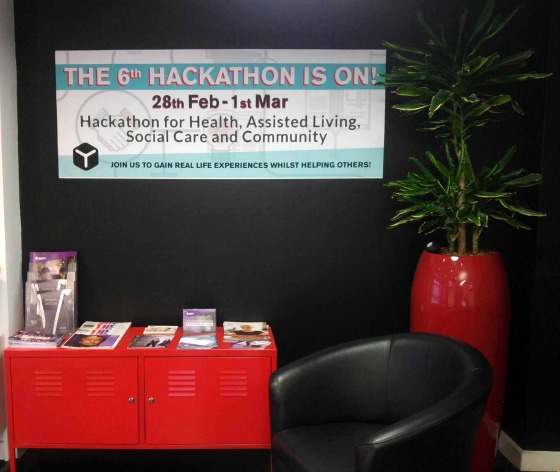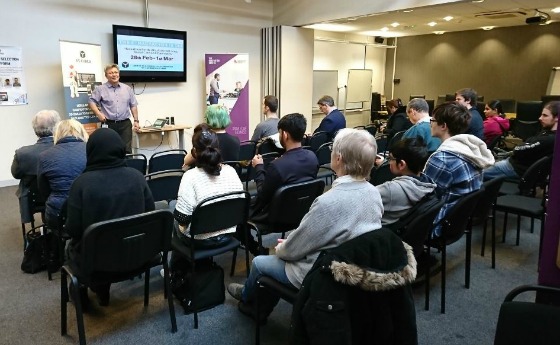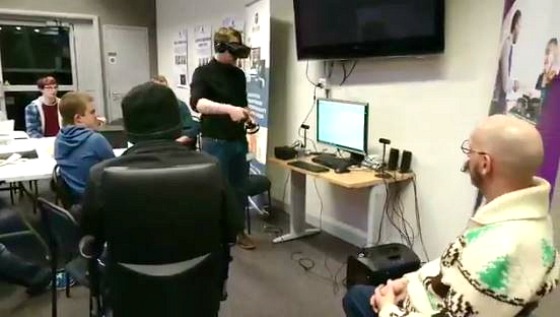Students at De Montfort University Leicester (DMU) have been at the forefront of developing important game applications to raise awareness of two serious social and health issues.

Working together with local professionals and organisations, students across different disciplines came together for the sixth Hackathon for Health, Assisted Living, Social Care and Community (HALE 2017) hosted over 48-hours by DS-Cubed at DMU’s Innovation Centre.
DS-Cubed is a software development and consultancy company managed by Dr Samad Ahmadi, a Reader in Optimisation and Computational Intelligence at DMU, and run by student interns and volunteers.
In one group, students worked together with Leicestershire County Council and people with personal experience of homelessness on a game with a serious message.
The prototype tells the real stories of young homeless people in the UK, offering advice and support in order to provide positive alternatives for those facing similar challenges.
Working with Community Leicester Arthritis Self Help (CLASH), a user-led charity, students in the second group developed a virtual reality (VR) game to raise awareness of managing Musculoskeletal (MSK) conditions.

The app includes physiotherapy exercise sessions to encourage users to sustain upper limb mobility. The idea is for the tool to be developed for the numerous other joints affected by MSK conditions.
Co-founder of CLASH, Chris Thomas, said: “I first set up this charity because I was desperate for support with my osteoarthritis, so seeing an app like this being developed and knowing how many people it could help is very exciting.
“DMU has been so good to CLASH, more so than the health sector. Being able to work with student interns through the university’s Frontrunners and Graduate Champions schemes has been invaluable to us.”
RELATED NEWS
DMU helps app for cancer patients win funding
48-hour Hackathon in Brazil leads to winning app
Find out what DMU has to offer at the next Open Day
Jodi Shadfforth, a second year Game Art student, said: “As one of four designers taking part in the event I had the chance to work across both prototype apps, which included some 3D modelling.
“Working under such time pressure is great. It really helps people to focus on the job at hand and to be honest and clear about what they want.”

First year Computer Science student James Pears was drawn to the event as a way of enhancing his CV and employability skills.
He said: “Working with the MSK group I had the chance to see how VR is created and used, which is something I’ve never done before.
“The best parts of the experience were seeing people’s confidence increase as the first day went on and gaining real life experience of developing applications.”
Product Design student and DS-Cubed intern Agnes Bednarczyk, had a big role to play in organising the event and promoting it on the company’s website and social media channels.
“As well as getting involved in designing graphics for the homelessness app on the day, I also had a big role in establishing the basic purpose of the app and organising workloads,” she said.
Dr Ahmadi, said: “It was a productive event and I’m very happy with what we achieved and the valuable real-life experience we provided for our students.
“It is always a challenge bringing together people with such wide-ranging skills, but wonderful seeing them develop their communication skills and collaborating like this.
“Our job now at DS-Cubed is to provide continuity. Our interns and volunteers are working on perfecting the prototype apps and securing funding for them. Currently, Medilink has shown an interest in financing these two apps so that people in need can access them.”
Posted on Monday 6 March 2017